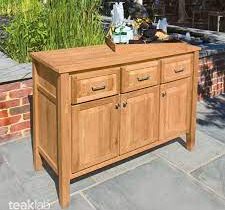When you purchase a home for the first time, it’s only natural to start thinking about the many changes you can make. You might want to add an extension, replace the roof, or install a new kitchen.
Some renovations can cost tens of thousands of dollars, and you may not have that much money available to you at a moment’s notice. Without giving up on your renovating dreams altogether, consider funding your house project in some of the following ways.
Take On a Second Job
You might earn enough money to live on comfortably, but potentially not enough to fund an expansive renovation on one salary alone. In that case, consider taking on a second job on nights and weekends.
By enrolling in a hospitality course, you can be fully qualified and experienced for a range of hospitality jobs that tend to be in abundance in the evenings and on weekends. When you have the necessary skills like table service, serving food and beverages, and food safety, you may have no trouble securing a job that helps bolster your bank account.
Sell and Save
If you value your spare time and don’t want to take on a second job, you can simply start your savings journey and be careful with your money. Spend as little as possible to maximize your savings, and even consider selling assets you no longer need.
Any work bonuses, asset sale money, and spare change can all be added to this bank account to go toward property alterations. If you are opening a new bank account for your renovation fund, talk to your bank about accounts with high interest rates to maximize your earnings.
This option is more suitable for people who aren’t in a hurry to make changes. If your roof is leaking or you’re combating electrical or plumbing issues, it’s possibly not a suitable funding type.
Home Repair Loans
If you have small to medium-sized projects you’d like to get underway without delay, you may want to consider home repair loans through banks and possibly even online lenders. These are unsecured loans that don’t require you to use your house as collateral, and you can receive the money in just a few days or less.
This funding option is suitable for people who want fast and easy access to money for an emergency repair. However, it’s important to note that the interest rates often reflect your credit score. If you have poor credit, such a funding option may be unaffordable for you.
A Secured Loan
A secured loan, also known as a home equity line of credit (HELOC), is a type of loan and revolving credit with traditionally lower interest rates than personal loans and home repair loans.
You put your house up as collateral and borrow money against its value. Most providers will only lend to homeowners who have at least 15% to 20% equity in their property.
Many people prefer this form of funding for renovations because it can function as revolving credit, and you can take what you need up to your borrowing limit. However, it’s essential to understand that if you miss payments, your bank or lender has the right to foreclose on your property.
Home Equity Loan
Secured loans are a preference for many people with plenty of equity in their homes, but they aren’t your only cost-effective option to help get renovations underway. You can also look at home equity loans.
These loan types function similarly to a second mortgage. You receive a loan in one lump sum payment based on how much you need for painting, plumbing repairs, a new roof, or something else, and you pay with a fixed interest rate.
A home equity loan has the same rate over its lifetime, and you pay it alongside your mortgage. Like a secured loan, your home is used as collateral, which means if you fall behind on your payments, your lender may have the right to foreclose on your property.
Government Loan
A property improvement loan through the government may be an option if you qualify for a government scheme. This loan type allows you to borrow up to $25,000 without home equity if you’ve just purchased a house and need to upgrade it for the sake of liveability. Such a loan must be used for specific upgrades, and many you have in mind may not qualify.
Credit Cards
While using credit cards to cover the costs of significant renovations should rarely be a homeowner’s first choice, there are situations where they can prove to be quite convenient. This can especially be true if you don’t currently have a credit card and can take advantage of competitive offers when signing up for one.
Some credit card companies and banks offer set interest-free periods. As a result, you may be able to cover the costs of minor renovations without paying any interest. You may even be eligible for introductory offers through the use of credit cards.
If you already have one, be mindful of high interest rates before charging products and services to your card that may end up costing considerably more than their purchase price.
Cash-Out Refinance
Cash-out refinancing is not usually a suitable option for minor home renovations. Instead, it may be something you consider if you’re going to be spending tens of thousands of dollars on an extension or a complete home refurbishment, and the current bank interest rates will work in your favor.
Cash-out refinancing involves refinancing your current mortgage and receiving a larger loan with a new interest rate. The difference between your new loan and your old mortgage can be what you use for house renovations. Such an option comes with associated costs, such as an appraisal, taxes, an origination fee, and closing costs.
Family Loans
Some repairs are so urgent, such as plumbing and electrical, that you don’t have time to go through the application process for loans. These problems require almost immediate action, and tradespeople involved in making the repairs also want to be paid as soon as possible.
Relying on loved ones can be one of your only options. If you need to borrow from friends and family to cover urgent renovations, consider doing so with a contract. Outline how much you’ve borrowed, any interest you’re going to pay with the loan, and when you will pay the loan back.
Having a contract may reduce the risk of any miscommunication about the loan terms and whether it was a loan or gift.
Funding house renovations can be stressful and complicated, but you will be pleased to know that you have many different options at your disposal. Weigh up the pros and cons of each and be ready to get them underway before you know it.















